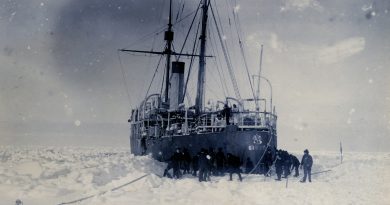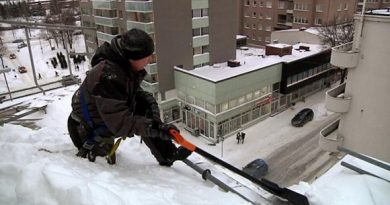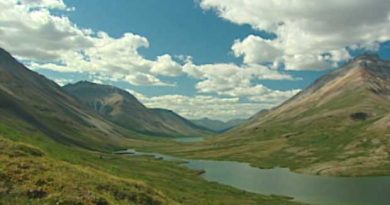MOSAiC international science expedition completes crew transfer in Central Arctic
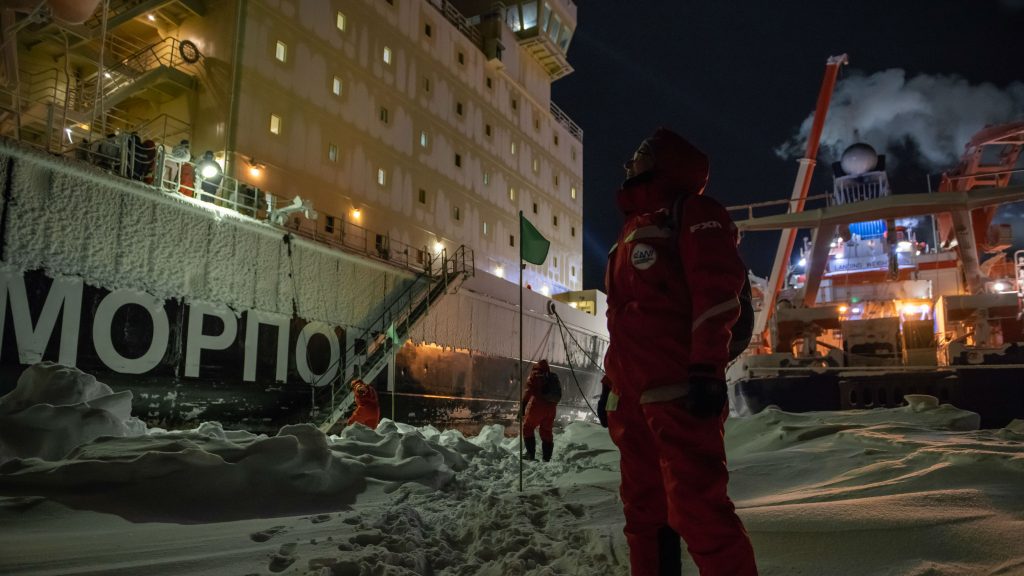
A one year, international Arctic science expedition started its second leg this week with approximately 100 people switching places between German research icebreaker Polarstern and the Russian resupply icebreaker Kapitan Dranitsyn, all taking place in the middle of the Central Arctic sea ice.
The Multidisciplinary drifting Observatory for the Study of Arctic Climate (MOSAiC) expedition was launched on the RV Polarstern in October in the Siberian region of the Arctic to study climate systems in the Central Arctic. The project is led by the Alfred Wegener Institute, Helmholtz Centre for Polar and Marine Research (AWI).
The icebreaker will drift with the sea ice in the Central Arctic for one year until the expedition wraps up in 2020.
Icebreakers from Russia, China and Sweden will resupply the expedition during the year, including both fuel and exchanging personnel as happened this week.
“The first phase of the expedition wasn’t easy,” said Markus Rex, MOSAiC expedition leader from AWI in a news release this week.
“The ice, at less than a metre, is unusually thin, highly dynamic and constantly in motion. We very often saw new cracks and channels in the ice, or the formation of several-metre-tall pack ice hummocks: jagged piles of ice, formed when rising pressures cause the ice floes to press against one another and stack up. The force of this crashing ice impressively demonstrates the power of nature, in whose hands we now find ourselves. In addition, newly formed hummocks often buried our equipment, which we then had to retrieve and set up all over again – not to mention the cracks in the ice, which are dangerous for the team and instruments alike.”
Work and safety briefings
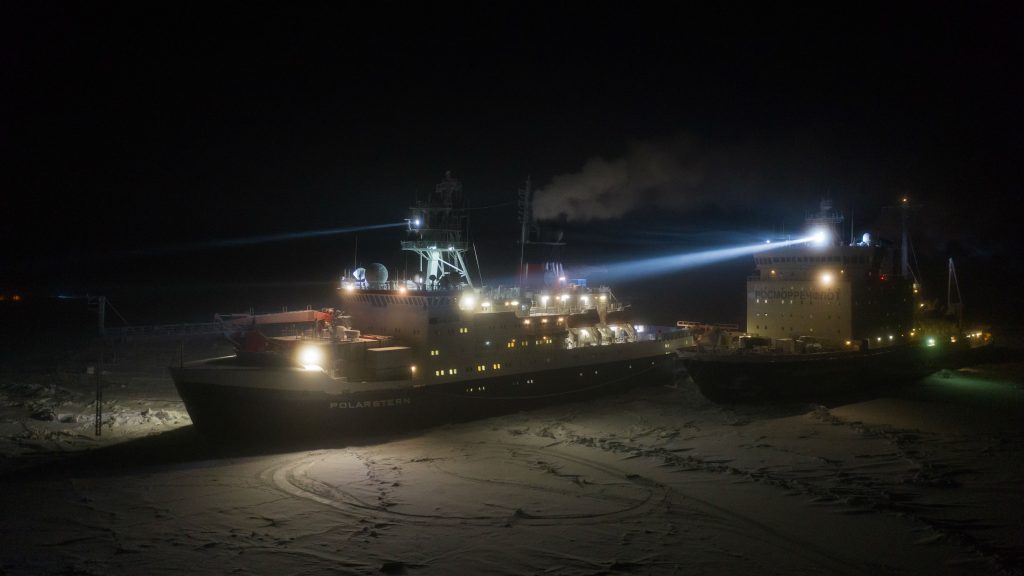
During the five-day crew handover, the new MOSAiC team was briefed on everything from the upcoming working conditions to polar bear safety on research sites.
“A major challenge for us ‘newbies’ is the fact that we’re now on an ice floe that we’ve never seen by the light of day, and as a result, we have no idea where we actually are,” Christian Haas, a sea-ice geophysicist at the AWI and leader for the second leg of the expedition, said in the news release. “So we have to learn how to perceive our surroundings using means other than our eyes.”
This week’s handover between the Polarstern to the Kapitan Dranitsyn was completed on Wednesday at 12:30 CET.
Canada participating in project
The budget for the project is 140 million euros.
More than 300 experts from 16 different countries, including Canada, will work on the Polarstern at some point during the expedition.
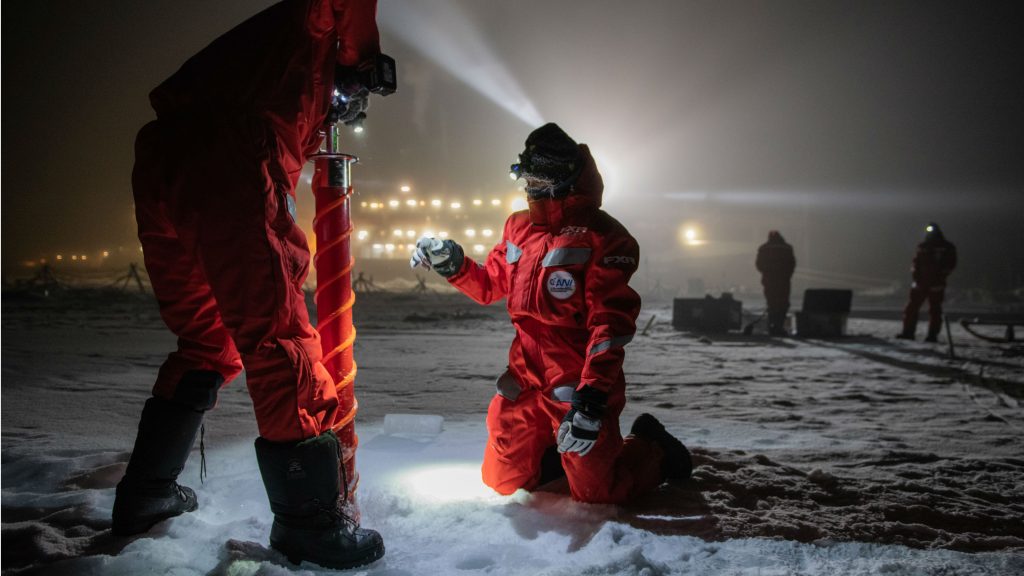
As of Thursday, the expedition was currently approximately 270 km from the North Pole.
The Polarstern can be tracked in real time on the MOSAiC web app.
Write to Eilís Quinn at eilis.quinn(at)cbc.ca
Related stories from around the North:
Antarctica: Do the extreme conditions of Antarctica change the human brain?, Eye on the Arctic
Canada: We’ll see an ‘ice-free’ Arctic this century, says latest research, CBC News
Finland: Finnish EU presidency to work on stronger Arctic policy, climate change mitigation, Yle News
Greenland: Documentary will show climate change through eyes of pioneering scientist, Mia Bennett – Blog
Iceland: Geoengineering climate fixes popular at Arctic Circle assembly, Mia Bennett – Blog
Norway: Twin science projects seek to understand impacts of Arctic climate change, Radio Canada International
Russia: Russian icebreaker leaves Tromsø to supply ice-locked German research ship, The Independent Barents Observer
Sweden: Over 11,000 scientists sign statement warning of climate emergency, Radio Sweden
United States: Alaska Federation of Natives declares climate emergency, Alaska Public Media

